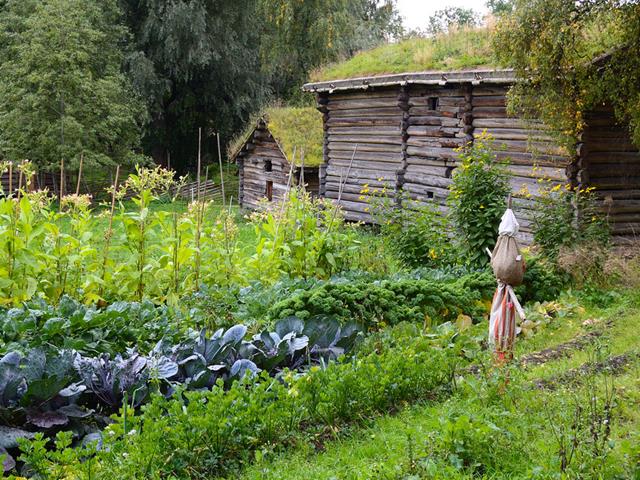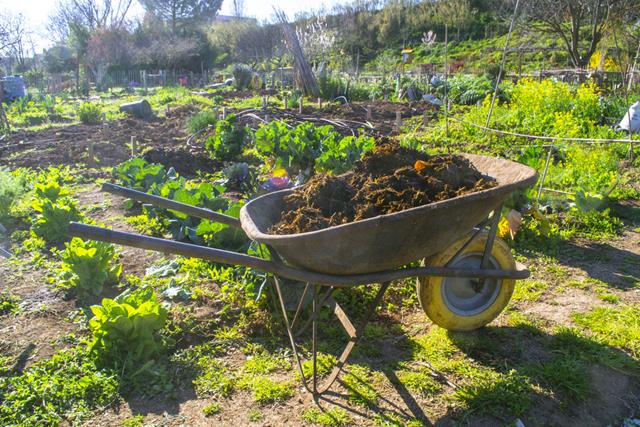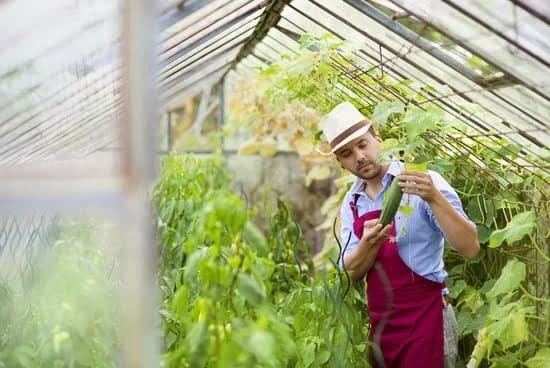Vegetable gardening is hard work, but the rewards can be incredibly satisfying. From planning and preparation to constant maintenance, growing vegetables requires dedication and effort. In this article, we will explore the challenges and joys of vegetable gardening, offering tips and advice for a successful harvest.
As with any endeavor, proper planning and preparation are essential for creating a thriving vegetable garden. We will discuss the crucial steps in establishing your garden, from choosing the right location to preparing the soil for optimal plant growth. Understanding the importance of nutrient-rich soil and composting will also be emphasized, as healthy soil is vital for the success of your vegetable plants.
In addition to soil care, selecting the right vegetables and providing proper care for them are equally important aspects of vegetable gardening. From seed selection to transplanting and maintaining plant health, we will delve into the necessary steps for ensuring a bountiful yield.
Furthermore, we will address common garden pests and strategies for effective pest control to protect your plants from harm. Throughout this article, we will highlight the ongoing maintenance required to keep your vegetable garden thriving, including necessary tasks such as weeding and regular plant care.
Planning and Preparation
When it comes to vegetable gardening, proper planning and preparation are crucial for a successful and thriving garden. Here are some essential steps to take when preparing for your vegetable garden:
1. Choose the right location: Select a spot in your yard that receives plenty of sunlight and has good drainage. Avoid areas that are prone to flooding or have poor soil quality.
2. Determine the size of your garden: Consider how much space you have available and how many different types of vegetables you want to grow. Start small if you’re a beginner, and gradually expand as you gain experience.
3. Test the soil: Before planting, it’s important to test the pH levels and nutrient content of your soil. This will help you determine if any amendments, such as lime or compost, are needed to ensure healthy plant growth.
4. Create a planting schedule: Different vegetables have different growing seasons, so it’s important to plan out when each crop should be planted to maximize your yield throughout the year.
5. Invest in quality tools and supplies: Make sure you have the necessary tools for planting, watering, and maintaining your garden. This includes items such as a shovel, rake, hoe, watering can or hose, and fertilizer.
Remember that vegetable gardening is hard work, but with proper planning and preparation, you can set yourself up for a successful harvest and enjoy the numerous benefits of growing your own fresh produce right at home.
Soil and Composting
When it comes to vegetable gardening, one of the most crucial aspects to consider is the quality of the soil. Nutrient-rich soil plays a vital role in the health and growth of your vegetable plants. Without proper soil, your plants may struggle to thrive and produce a bountiful yield. In this section, we will explore the importance of soil and composting in vegetable gardening and how you can ensure that your plants have the best possible growing environment.
The Role of Soil in Vegetable Gardening
The soil in your garden provides a foundation for your vegetable plants, supplying essential nutrients and water. Understanding the composition of your soil is key to ensuring that it can support healthy plant growth. Testing the pH levels and nutrient content of your soil can help you determine what adjustments may be necessary to create an optimal growing environment for your vegetables.
The Benefits of Composting
Composting is an excellent way to enrich your soil with organic matter and nutrients. By creating a compost pile from kitchen scraps, yard waste, and other biodegradable materials, you can produce nutrient-rich compost that will improve the texture and fertility of your soil. Additionally, composting helps to reduce waste by recycling organic materials into a valuable resource for your garden. Incorporating compost into your soil can promote strong root development, improve moisture retention, and enhance overall plant health.
Plant Selection and Care
When it comes to vegetable gardening, one of the most crucial aspects is selecting the right vegetables for your specific location and climate. Not all vegetables will thrive in every environment, so it’s important to research which ones are best suited for your area.
Factors such as temperature, sunlight, and soil type should be taken into consideration when choosing which plants to cultivate. Additionally, understanding the requirements of each type of vegetable is essential for their proper care and maintenance.
Once you’ve selected the vegetables that are best suited for your garden, it’s important to provide them with the proper care to ensure their health and growth. This includes regular watering, adequate sunlight, and proper spacing between plants to allow for optimal growth. Some vegetables may also require additional support such as trellises or cages to help them grow vertically and maximize space.
One important aspect of maintaining the health and growth of your vegetable plants is implementing a consistent fertilization schedule. Nutrient-rich soil is vital for the success of any vegetable garden, so using organic compost or fertilizer can greatly enhance the quality of your plants. Regularly adding compost to the soil helps improve its structure, enhances its ability to retain water, and increases nutrient levels-all essential components for healthy plant growth.
| Aspect | Importance |
|---|---|
| Vegetable Selection | Crucial based on location and climate |
| Care and Maintenance | Proper watering, sunlight, support |
| Fertilization | Nutrient-rich soil is vital for plant growth |
Pest Control
One of the most common pests in vegetable gardens is aphids, tiny insects that feed on plant sap and can quickly multiply, causing damage to your plants. To combat aphids, consider introducing natural predators such as ladybugs or lacewings to your garden, or use insecticidal soap to control their population.
Another troublesome pest is the tomato hornworm, which can decimate tomato plants if left unchecked. Handpicking these large green caterpillars from your plants is an effective method of control, or you can apply Bacillus thuringiensis (Bt), a natural bacterial insecticide that targets specific pests like the tomato hornworm.
Here are some effective pest control measures for your vegetable garden:
- Introduce beneficial insects such as ladybugs, lacewings, or parasitic wasps
- Use natural insecticidal soaps or oils to control aphids, mites, and other soft-bodied insects
- Apply Bt (Bacillus thuringiensis) to target specific caterpillars like tomato hornworms
- Implement physical barriers such as row covers to protect plants from pests
By understanding the behavior and life cycles of common garden pests and implementing proactive control measures, you can effectively protect your vegetable plants and promote a healthy garden environment. Although managing pests in your vegetable garden requires diligence and effort, the rewards of a thriving harvest make the hard work worthwhile.
Weeding and Maintenance
Regular Weeding
Weeding is an essential part of vegetable gardening as it helps to prevent competing weeds from absorbing nutrients and water that your vegetables need. It’s important to regularly inspect your garden for any unwanted plants and remove them promptly. One effective method is to use a hand tool to gently remove the weeds while being careful not to disturb the roots of your vegetable plants.
Watering and Mulching
Proper watering is crucial for the health and growth of your vegetable garden. Depending on the climate and soil type, you may need to water your plants every day or every few days. Additionally, applying mulch around your plants can help retain moisture in the soil and reduce the growth of weeds. Organic mulches such as straw or shredded leaves can also gradually break down and enrich the soil with valuable nutrients.
Pruning and Supports
Some vegetable plants, such as tomatoes and beans, benefit from pruning and support structures to encourage healthy growth. Regularly pruning off dead or diseased branches can improve air circulation around the plants and reduce the risk of fungal infections. Similarly, using stakes or trellises can help support your plants as they grow, preventing them from becoming overwhelmed by their own weight.
Vegetable gardening is hard work, but with proper weeding and maintenance, you can ensure that your garden continues to thrive throughout the growing season. By staying attentive to the needs of your plants and providing ongoing care, you’ll be well on your way to enjoying a bountiful harvest of fresh, homegrown vegetables.
Harvest and Rewards
Harvesting the vegetables from your garden is the culmination of all your hard work and dedication. There is nothing more satisfying than enjoying the fruits of your labor and knowing that you have produced a bountiful yield. Whether you are picking ripe tomatoes, crisp lettuce, or vibrant peppers, harvesting your homegrown vegetables is a truly rewarding experience.
Not only do you get to enjoy the delicious flavor and freshness of your own produce, but you also benefit from the nutritional value that comes with homegrown vegetables. You can take pride in knowing exactly where your food comes from and how it was grown, which adds an extra level of satisfaction to meal times.
In addition to personal satisfaction, vegetable gardening has numerous benefits for mental and physical health. Spending time outdoors tending to your garden can be therapeutic and a form of exercise. The physical activity involved in gardening, such as digging, planting, and weeding, provides great cardiovascular exercise. Furthermore, seeing the fruits of your labor gives a sense of accomplishment and boosts mental well-being.
| Benefits | Details |
|---|---|
| Freshness and Flavor | Harvesting homegrown vegetables allows for enjoying their delicious flavor and freshness |
| Nutritional Value | Homegrown vegetables provide high nutritional value along with added satisfaction |
| Mental and Physical Health Benefits | Gardening provides therapeutic benefits while being a form of exercise which boosts mental well-being. |
Conclusion
In conclusion, it’s clear that vegetable gardening is hard work, but the rewards are well worth the effort. As we’ve explored throughout this article, planning and preparation are essential for a successful garden. Understanding the importance of nutrient-rich soil, proper plant selection and care, effective pest control, and ongoing maintenance all contribute to the overall success of a vegetable garden.
Despite the challenges and hard work involved in vegetable gardening, there are numerous benefits to be enjoyed. Not only does it provide a source of fresh, healthy produce, but it also offers a sense of accomplishment and satisfaction. The act of caring for and nurturing plants can be incredibly therapeutic and rewarding. Additionally, there is a sense of pride in being able to harvest and enjoy the fruits of your labor.
Ultimately, while vegetable gardening may indeed be hard work, it is a fulfilling and worthwhile endeavor. It provides an opportunity to connect with nature, stay active, and enjoy delicious homegrown produce. So, for anyone considering starting their own vegetable garden: yes, it requires dedication and effort, but the benefits make it all worthwhile.
Frequently Asked Questions
Is Vegetable Gardening Difficult?
Vegetable gardening can be as easy or as difficult as you make it. With the right knowledge, tools, and proper care, anyone can successfully grow their own vegetables at home.
Is a Vegetable Garden a Lot of Work?
While vegetable gardening does require some effort and maintenance, it doesn’t have to be a lot of work if you plan and organize your garden effectively. Many people find it rewarding and enjoyable rather than burdensome.
Why Gardening Is Difficult to Learn?
Gardening can be difficult to learn because it involves understanding the needs of different plants, recognizing pests and diseases, and mastering various techniques such as soil preparation and watering. It also requires patience and trial-and-error to become proficient in this skill.

If you’re looking to get into vegetable gardening, or are just looking for some tips on how to make your current garden better, then you’ve come to the right place! My name is Ethel and I have been gardening for years. In this blog, I’m going to share with you some of my best tips on how to create a successful vegetable garden.





